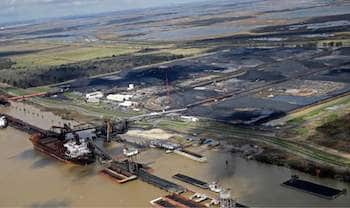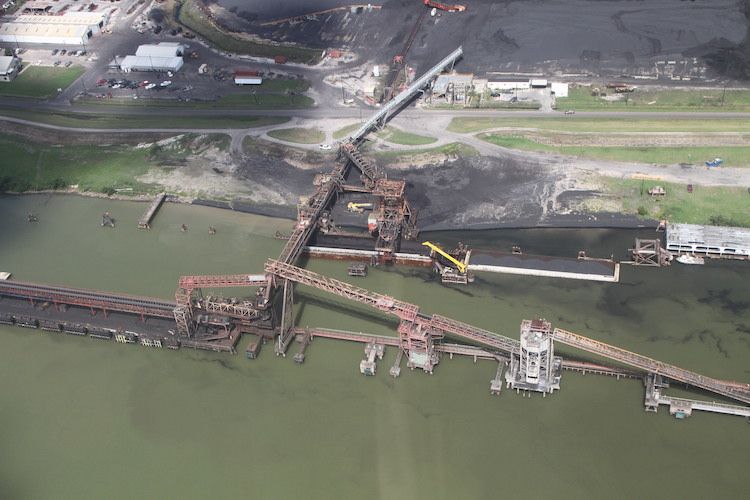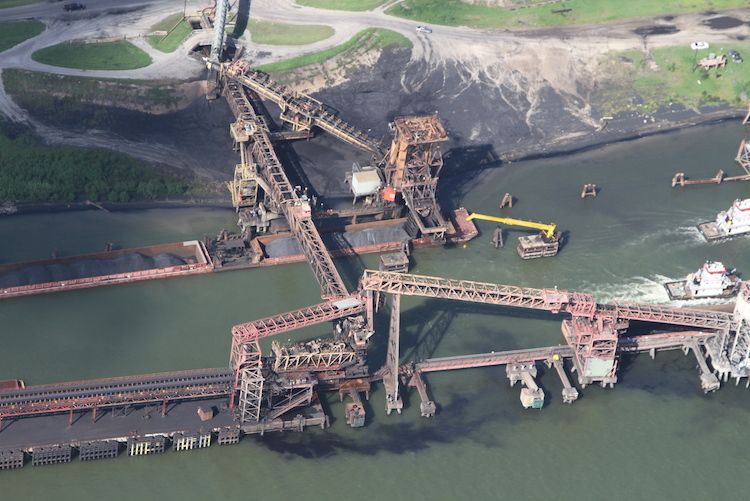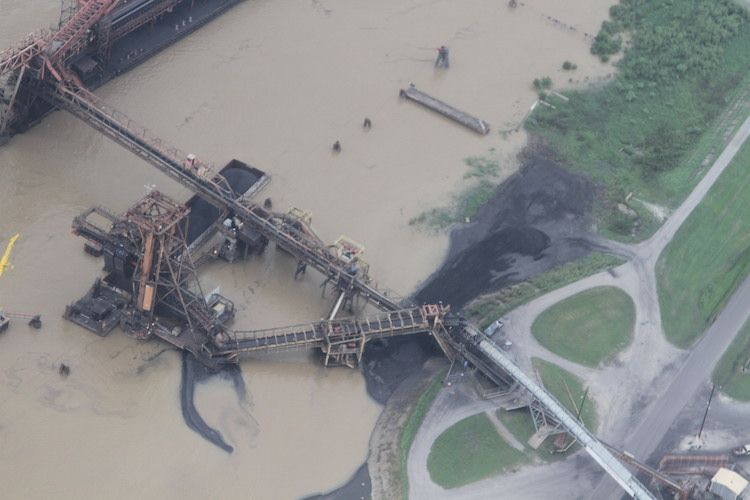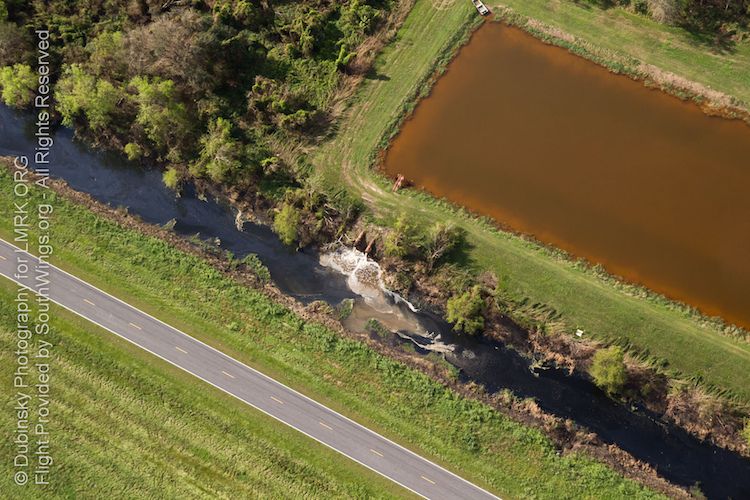A coalition of environmental advocacy groups filed a lawsuit earlier this week against United Bulk, alleging that the company is responsible for numerous violations of the Clean Water Act for polluting the Mississippi River. United Bulk operates coal export terminals along the Mississippi and the Gulf Coast.
The suit alleges — along with plenty of photographic evidence to back up the allegations — that United Bulk has left piles of coal debris and petroleum coke (petcoke) along the banks of the river for the last five years. These piles are left unattended, unsecured, and uncovered in the elements, allowing wind and rain to easily sweep these pollutants into the Mississippi River and nearby marshes.
A press release from the Clean Gulf Commerce Coalition lays out the basics:
The suit contends that United Bulk has illegally discharged coal and petcoke into the river every day that it has operated for at least five years. It points out that coal and petcoke—an oil-refining byproduct with high levels of arsenic, mercury and other toxins hazardous to human health and aquatic life—have been discharged into the river in enough quantities to produce visible spills on a regular basis. The suit also cites the U.S. Environmental Protection Agency’s determination that stormwater runoff from coal piles “can flush heavy metals from the coal, such as arsenic and lead, into nearby bodies of water.”
As mentioned above, the Gulf Restoration Project and the Sierra Club have released photographs of United Bulk’s contamination of the Mississippi River:
While the dangers of coal pollution are fairly well-known, petcoke threats have managed to fly mostly under the public radar.
Last year, Oil Change International compiled a list of the dangers of petcoke pollution, which is much more hazardous to the environment than coal.
According to Oil Change International, one ton of petcoke will release 50% more CO2 than a ton of coal, while containing the same kinds of carcinogens and other toxins as coal — arsenic, lead, cadmium, chromium, and mercury.
Compounding the problem is the fact that petcoke is considered a “refinery product,” and therefore is not counted in the environmental assessments of dirty energy projects, like the Keystone XL pipeline, which would increase the pipeline’s emissions by at least 13%. Petcoke is a major byproduct of refining tar sands bitumen.
The lawsuit also underscores the larger problem of coal exports becoming increasingly unnecessary. Due to reduced demand across the globe, and the volatility of financial markets abroad, it is less and less profitable for coal mining companies to send their dirty coal overseas. Even the dirty energy dependent state of Texas has decided that investing in new export terminals is an economically unviable pursuit.
The lawsuit could be a fairly easy battle for the environmental groups, as it was filed in the U.S. District Court for the Eastern District of Louisiana, which currently has four Republican-appointed judges and eight Democrat-appointed judges.
Still, a biased panel on the case could easily swing it in favor of United Bulk. Let’s hope that adherence to the law will trump political affiliations in this case.
Subscribe to our newsletter
Stay up to date with DeSmog news and alerts


